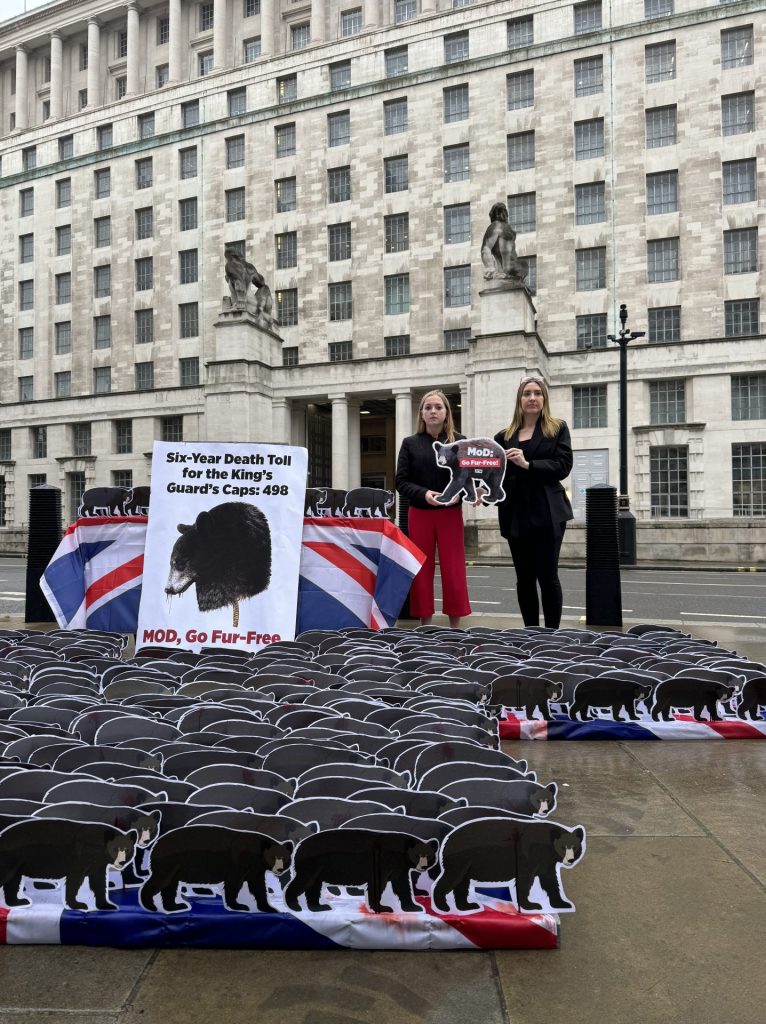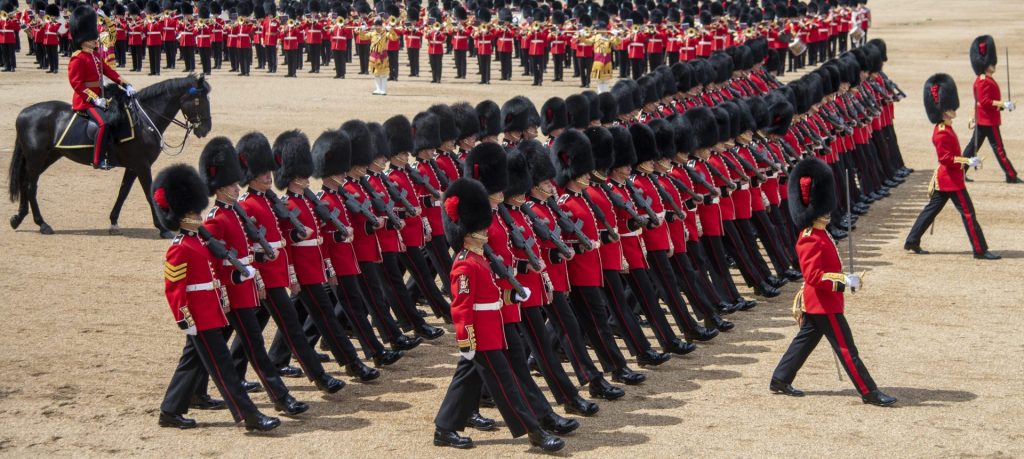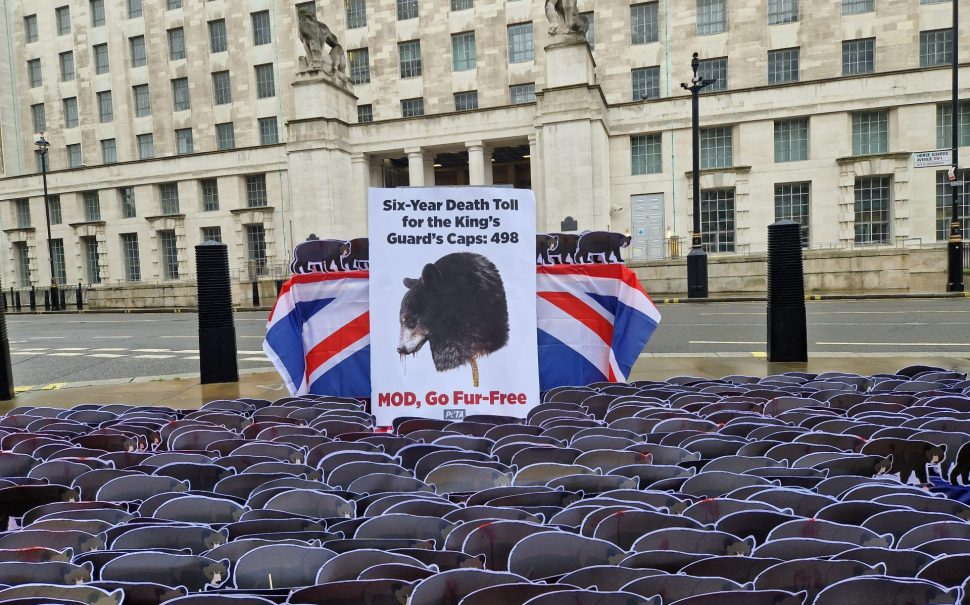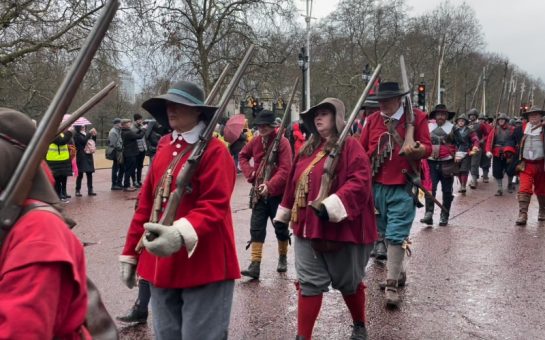PETA is urging the Ministry of Defence to replace the King’s Guards’ ceremonial bearskin caps with faux fur caps.
With the help of luxury faux furrier ECOPEL, PETA introduced a new faux fur alternative that may be used for the caps and in 2017 offered to provide the Ministry of Defence an unlimited supply till 2030 free of charge.
To protest the continued use of bearskin caps, PETA laid 498 “blood”-splattered bear cut-outs before the Ministry of Defence’s building in Whitehall earlier this month.

The bears laid before the Ministry of Defence represent the 498 Canadian black bears killed so that their hide may be used for the King’s Guards’ caps since PETA and ECOPEL made their offer in 2017.
PETA Senior Campaigns Manager Kate Werner said: “Those deaths are particularly grotesque because the faux fur is just there waiting to be used so the bears don’t need to be turned into caps.”
In March 2022, PETA announced that the government had spent £1m on bearskin caps over a seven-year period.
A Populus opinion poll issued in the same month revealed that 75% of the UK public considers bearskin caps “a bad use of Government funds,” while 73% would like to see the government take action to replace bear fur with faux fur.
In light of these findings, Werner said: “It is totally out of step with modern Britain.
“A faux fur cap would give a nod to tradition while updating this iconic symbol of Britain to make it reflect 21st century values.”

In light of PETA’s campaign, a spokesperson for the Ministry of Defence said: “Bears are not hunted to order for the MoD.
“Instead, the bear pelts used are a product of legal and licensed hunts, sourced exclusively from the regulated Canadian market.
“Reductions in the number of bearskins procured would not reduce the numbers of bears being hunted.”
Addressing the prospect of using a faux fur alternative, the Ministry’s spokesperson added: “The Department has set out a list of criteria that any material for the bearskin caps must meet.
“However, to date, and to the Department’s knowledge, no faux fur sample has been produced which meets all five of the initial testing criteria for bearskin caps.”
The Ministry says that any faux fur alternative must be on par with bearskin when it comes to water absorption and penetration, drying rate, appearance and return to its original size after compression.
It also says it will take into consideration the sustainability, shape and comfort of any bearskin alternative.
According to PETA, its faux fur alternative not only satisfies all the conditions listed by the Ministry, but its alternative outperforms bearskin on multiple fronts.
PETA found that its faux fur is completely waterproof, dries quicker than bear fur, looks identical and performs equally well when it comes to compression.
Werner added that the faux fur will be cheaper to produce, especially considering it is offered free of charge till 2030.
Importantly, Werner noted that the faux fur is lighter, making it more comfortable for the King’s Guards to wear and less likely to contribute to them feeling fatigued or fainting as temperatures rise in summer.
“Even with that on the table,” said Werner “the MoD refuses to look at the test results from the labs and it hasn’t yet seen a sample of the faux bear fur.
“They’ve refused to view the test reports and there’s a just been a lack of will and desire.”
As long as bear fur is used, Werner says that the government will be creating a market for it and incentivizing the hunting and killing of these bears for profit.
She said: “Switching to faux fur would definitely mean that we are no longer part of this industry that is really, really horrendously cruel and violent.”
“It’s time to modernise, it really is.”
Main image credit: PETA UK.





